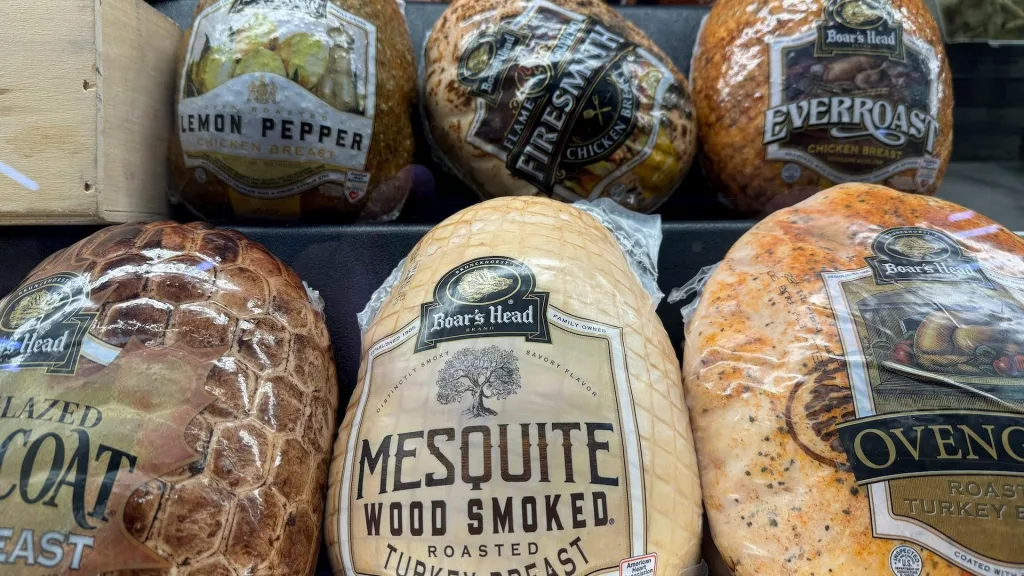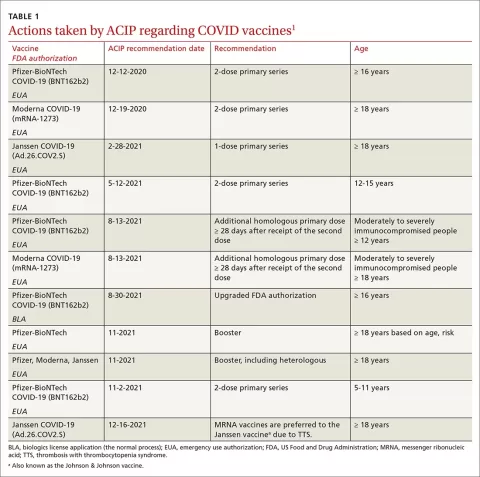Listeria outbreak linked to packaged meals is prompting warnings from health officials and prompting recalls. A multistate outbreak of Listeria monocytogenes is linked to the FreshRealm recall of packaged pasta meals, with three new illnesses and one more death reported. The CDC’s PulseNet investigations indicate that cases stem from chicken fettuccine Alfredo listeria heat-and-serve meals, which were recalled on June 17. Meanwhile, testing of the beef meatball marinara linguini meals produced by Nate’s Fine Foods shows Listeria in the pasta component, though those products have not yet been distributed. Public health officials are interviewing patients to determine whether additional products may be involved as the outbreak unfolds.
Viewed through a different lens, this is a multistate listeriosis cluster linked to ready-to-eat meals and pre-cooked pasta products. Food-safety alerts, recalls, and traceability efforts are central as investigators seek to identify contamination sources in packaged chicken Alfredo meals and other pasta entrées. Public health teams continue case interviews and monitoring for additional infections to prevent further spread. As the investigation unfolds, consumer advisories and supplier checks reinforce caution around ready-to-serve pasta dishes.
Listeria outbreak overview: current case count and scope
Three new illnesses, and one additional death, have been reported in a multistate Listeria monocytogenes outbreak linked to packaged meals. The Centers for Disease Control and Prevention (CDC) updates indicate 20 people from 15 states have fallen ill, an increase from 17 since the last briefing on June 18. Of the 20 case-patients, 19 have required hospitalization and 4 have died, including a pregnancy-associated illness that resulted in fetal loss. The illnesses date back to August 1, 2024.
The affected states include California, Florida, Illinois, Indiana, Louisiana, Michigan, Minnesota, Missouri, Nevada, North Carolina, Ohio, South Carolina, Texas, Utah, and Virginia. Patients range in age from 4 to 92 years. Public health officials are interviewing patients about foods eaten in the months preceding illness, and ongoing testing associates the outbreak with packaged meals linked to FreshRealm. Initial PulseNet findings traced cases to FreshRealm chicken fettucine alfredo heat-and-serve meals, which were recalled on June 17.
Public health response: Listeria monocytogenes outbreak and what it means
Public health authorities employ outbreak surveillance and lab testing to define the scope of a Listeria monocytogenes outbreak and to identify the source. The outbreak strain has been detected in linked products, reinforcing the need for rapid recalls and targeted recalls when products test positive for the outbreak strain. Health officials continue case interviews to assess potential exposure to other items and to expand the affected product list as information becomes available.
This event underscores the importance of coordinated action among federal, state, and local agencies, including recall communications, product tracing, and consumer advisories. Ongoing monitoring and transparent updates help public health teams track evolving risks and inform providers and retailers about safety steps for ready-to-eat foods and packaged meals.
FreshRealm recall and packaged meals: tracing the source
The outbreak is linked to FreshRealm packaged meals, with Chicken Fettucine Alfredo listeria identified as the initial source when contamination with the outbreak strain was detected and the affected products were recalled on June 17. This FreshRealm recall highlights how ready-to-eat, packaged meals can become points of exposure in multistate outbreaks.
Testing has also found Listeria in the pasta used in Beef Meatball Marinara Linguine meals produced by Nate’s Fine Foods; however, that product has not been distributed. Public health officials note that additional information is pending to determine if the pasta samples come from the same strain implicated in sick individuals, underscoring the complexity of tracing contaminated ingredients through a prepared-meal supply chain.
Listeria sources: packaged pasta meals connection and product testing
Packaged pasta meals continue to be the focal point of this investigation, with exposure tied to ready-to-eat items containing pre-cooked pasta. FreshRealm’s recall reflects how contaminated products can move through the distribution system before being identified by health authorities.
The CDC indicates that pasta from the beef meatball marinara linguine meals tested positive for Listeria, but these particular products were not distributed. Investigators are assessing whether pre-cooked pasta from the same supplier could carry the same outbreak strain, emphasizing the need for comprehensive testing and cross-product verification in outbreak investigations.
Beef meatball marinara linguine listeria: testing results and distribution status
Pasta from the beef meatball marinara linguine meals tested positive for Listeria, according to CDC updates, but the product had not reached consumers. The findings illustrate how contamination signals can appear in related prepared meals even when distribution has not occurred yet.
Public health officials emphasize that further information is needed to determine whether the pre-cooked pasta and any distributed components share the same outbreak strain. The outcome of these tests will influence future recalls and advisories as investigators work to map the contamination pathway across manufacturers and product lines.
Geographic spread: states affected and timeline of illnesses
The affected states span California, Florida, Illinois, Indiana, Louisiana, Michigan, Minnesota, Missouri, Nevada, North Carolina, Ohio, South Carolina, Texas, Utah, and Virginia. This broad geographic footprint reflects how ready-to-eat packaged meals can cross regional boundaries through retail distribution and consumer purchase.
Illness onset dates trace back to August 1, 2024, with 13 individuals interviewed by public health officials. Among them, 7 reported eating pre-cooked meals and 4 reported consuming chicken fettucine alfredo. The CDC notes that the true number of illnesses is likely higher than confirmed cases, due to underreporting and testing patterns.
Clinical outcomes: hospitalizations, fatalities, and pregnancy-associated impact
Of the 20 reported cases, 19 people have been hospitalized, and 4 have died. One pregnancy-associated illness resulted in fetal loss, highlighting the severe risk Listeria monocytogenes poses to pregnant people and their babies.
The breadth of affected ages—from 4 to 92 years—illustrates that Listeria infections can affect a wide demographic. While many patients require hospitalization, some individuals exposed to contaminated products may recover without medical care, potentially reducing the apparent case count.
Investigation methods: interviews, case finding, and data collection
Public health officials are actively interviewing sick individuals about the foods they consumed in the months before illness onset to identify additional implicated products. In the latest data, 13 people have been interviewed, with 7 reporting consumption of pre-cooked meals and 4 reporting chicken fettucine alfredo.
The CDC emphasizes that the official case count may underestimate true illness numbers due to underreporting, asymptomatic infections, and individuals who do not seek medical care. Ongoing case finding and laboratory testing are essential to refine exposure assessments and advance the investigation.
Listeria outbreak linked to packaged meals: consumer guidance and safety steps
Public health guidance for consumers stresses caution with Ready-to-Eat meals and awareness of recall notices related to packaged meals. If you have FreshRealm products or other recalled items, follow recall instructions, avoid eating affected products, and contact the retailer for refunds or replacements.
If symptoms consistent with listeriosis occur, seek medical care promptly, and inform the clinician about possible exposure to packaged meals. Consumers should monitor official updates for recall statuses, store remanent notices, and any changes to the implicated lot numbers or product lines.
Industry response: FreshRealm actions and broader implications for ready-to-eat meals
FreshRealm has issued recalls related to this outbreak and cooperates with public health investigations to identify all potentially contaminated products. The recall action demonstrates how manufacturers respond to confirmed contamination in a timely manner to limit exposure.
Nate’s Fine Foods reported that the beef meatball marinara linguine pasta tested positive for Listeria but was not distributed, illustrating the complexities of supply-chain controls and traceability in ready-to-eat meals. Ongoing investigations may lead to further product recalls and safety improvements across the packaged meals sector.
Public health messaging and risk communication during an outbreak
Health authorities continually update the public with new case counts, hospitalization figures, and recall statuses as investigations progress. Transparent risk communication helps retailers, healthcare providers, and consumers respond quickly to potential exposures.
The outbreak’s evolving nature requires sustained collaboration between federal agencies, state health departments, and industry partners. Clear guidance, timely recalls, and accessible consumer information support safer choices for packaged meals and other ready-to-eat products.
LSI-focused recap: key terms to watch in outbreak coverage
LSI-related terms driving coverage include Listeria monocytogenes outbreak, packaged pasta meals, FreshRealm recall, chicken fettuccine Alfredo listeria, and beef meatball marinara linguine listeria. These phrases help connect lab findings, recall actions, and consumer advisories across news and health communications.
As updates arrive, reporting will often reference case counts, hospitalizations, product testing results, and the status of recalls. Understanding these terms aids readers in following how investigations unfold and what actions may be advised for households.
Frequently Asked Questions
What is the current status of the Listeria monocytogenes outbreak linked to packaged meals?
The CDC reports 20 people across 15 states have been sickened in the Listeria monocytogenes outbreak linked to packaged meals. Three new illnesses and one additional death were noted, with 19 hospitalizations and 4 deaths overall. The outbreak has been tied to FreshRealm packaged pasta meals, and initial cases were linked to FreshRealm chicken fettucine alfredo heat-and-serve meals that were recalled on June 17. Beef meatball marinara linguine listeria samples have tested positive, but that product has not been distributed; the true number of illnesses may be higher as some cases go unreported.
What is the FreshRealm recall in relation to the Listeria outbreak linked to packaged meals?
The FreshRealm recall was issued for chicken fettucine alfredo heat-and-serve meals after the outbreak-linked Listeria monocytogenes strain was detected. While fresh-pasta products from FreshRealm are under investigation, tests also showed Listeria in pasta from beef meatball marinara linguine meals, though those products had not been distributed.
Are chicken fettucine Alfredo listeria cases part of the Listeria monocytogenes outbreak linked to packaged meals?
Yes. The initial cases identified by PulseNet were linked to FreshRealm chicken fettucine alfredo heat-and-serve meals, which tested positive for the outbreak strain and prompted the recall. This product is a key part of the outbreak linked to packaged meals.
Which products are involved in the packaged pasta meals tied to this Listeria outbreak?
The outbreak is linked to FreshRealm packaged pasta meals. Initial cases involved chicken fettucine alfredo heat-and-serve meals, with beef meatball marinara linguine meals also testing positive for Listeria in pasta tests, though that product had not been distributed.
How many states are affected and what is the age range of those ill in the Listeria outbreak linked to packaged meals?
Fifteen states are affected: California, Florida, Illinois, Indiana, Louisiana, Michigan, Minnesota, Missouri, Nevada, North Carolina, Ohio, South Carolina, Texas, Utah, and Virginia. Affected patients range in age from 4 to 92 years old.
What should consumers do if they have FreshRealm packaged meals during this Listeria outbreak?
If you have FreshRealm packaged pasta meals, do not eat them. Discard any affected products and check packaging for the recall status. Monitor CDC updates and contact the retailer or manufacturer for guidance on refunds or replacements. If you develop fever, muscle aches, or other symptoms after eating contaminated food, contact a healthcare provider, especially if you are pregnant or immunocompromised.
Why might the true number of illnesses in this Listeria outbreak be higher than reported?
The CDC notes that the true number is likely higher because some people recover without medical care and are never tested, and because not all illness cases are identified or reported in real time.
What foods have been tested for Listeria in this packaged meals outbreak, and what is the current status of beef meatball marinara linguine listeria findings?
Tests on the pasta in FreshRealm’s beef meatball marinara linguine meals have detected Listeria, but those products have not been distributed. The initial linked product, chicken fettucine alfredo, prompted the recall. Public health officials continue investigations to determine if other packaged meals are involved.
| Key Point | Details |
|---|---|
| Outbreak scope | Multistate Listeria outbreak linked to packaged meals; 20 people sickened across 15 states; 19 hospitalized; 4 deaths; one pregnancy-associated illness with fetal loss. |
| Dates and history | Illnesses date back to August 1, 2024. Case counts have risen with CDC updates. |
| Products involved | Packaged pasta meals made by FreshRealm; initial cases traced to FreshRealm chicken fettucine alfredo heat-and-serve meals (recalled June 17). Pasta in Nate’s Fine Foods beef meatball marinara linguini meals tested positive but have not been distributed. |
| Laboratory findings | Outbreak strain detected in FreshRealm products; testing ongoing to determine if pre-cooked pasta matches the same strain. |
| Geography | Affected states: California, Florida, Illinois, Indiana, Louisiana, Michigan, Minnesota, Missouri, Nevada, North Carolina, Ohio, South Carolina, Texas, Utah, Virginia. |
| Affected population | Age range of patients: 4 to 92 years. |
| Public health actions | State and local health officials interviewing patients about foods eaten before illness; recalls issued; PulseNet used to identify initial cases. |
| Interviews and exposures | Among 13 people interviewed, 7 reported eating pre-cooked meals and 4 reported eating chicken fettucine alfredo. |
| Uncertainties | CDC says the true number of illnesses is likely higher due to underreporting and asymptomatic cases not tested. |
The content provided on this blog (e.g., symptom descriptions, health tips, or general advice) is for informational purposes only and is not a substitute for professional medical advice, diagnosis, or treatment. Always seek the guidance of your physician or other qualified healthcare provider with any questions you may have regarding a medical condition. Never disregard professional medical advice or delay seeking it because of something you have read on this website. If you believe you may have a medical emergency, call your doctor or emergency services immediately. Reliance on any information provided by this blog is solely at your own risk.








